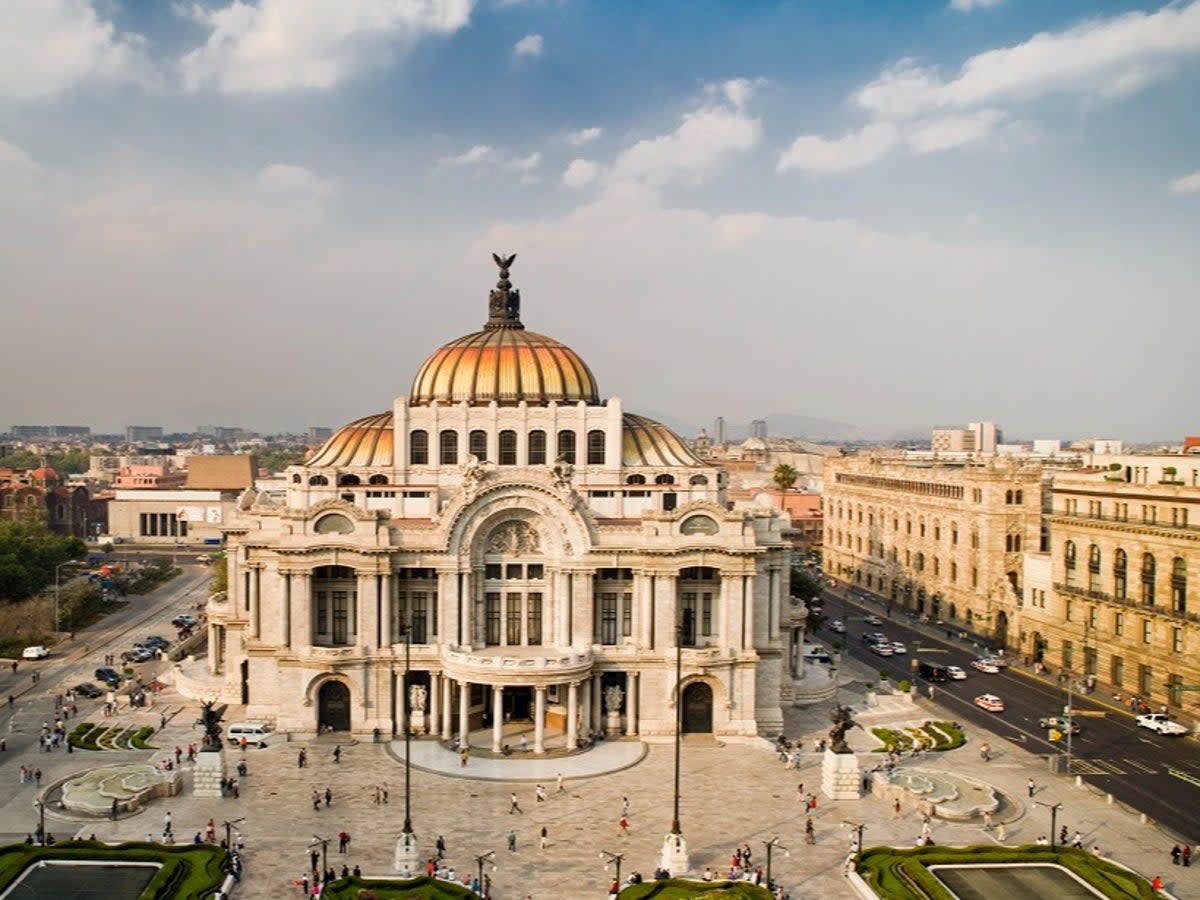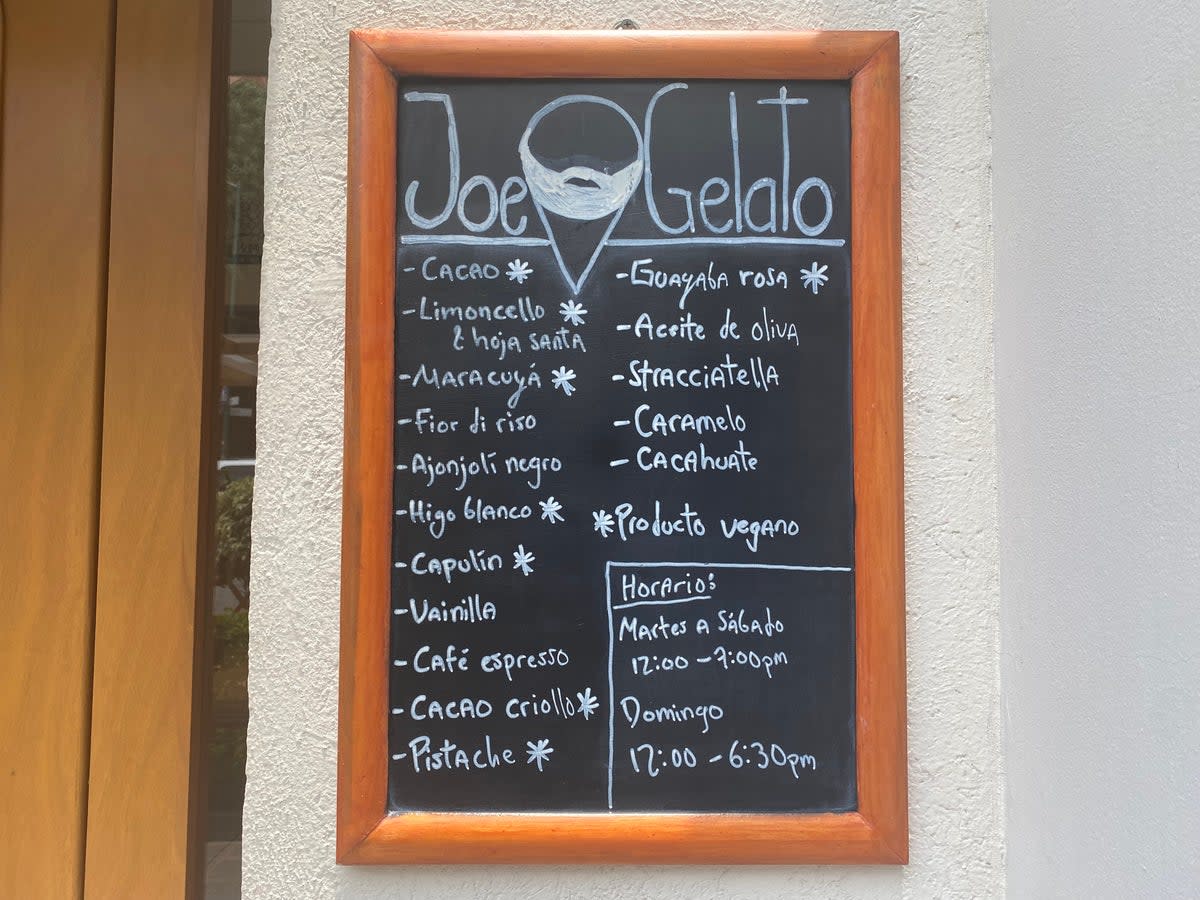Beyond the burritos: How Mexico City’s foodie scene got a serious upgrade

One of my favourite Mexico City hangouts is La Opera, a historic restaurant famous for its sopa de tortilla, red velvet booths and frescoed ceilings pockmarked with bullets fired by Pancho Villa in 1914. The Mexican revolutionary was apparently offended by the opulence of the venue, with its hand-carved walnut bar shipped from New Orleans, and fired off a few rounds to express his displeasure.
I can’t help but think he’d be more supportive of the latest trend shaping Mexico City’s food scene – a determination to showcase homegrown produce in new, innovative ways. Davide Preziuso, Andaz Mexico City Condesa’s executive chef, is particularly excited about the current passion for sustainable seafood.
“I’m trying to show people that it’s not just about salmon and sea bass,” says Davide during a chat on the hotel’s rooftop, with its colourful food truck. “Personally, I love Mexico’s octopus – you can fish it without having a massive impact.” This approach has allowed Mexico to showcase its offerings to new audiences. “The Japanese have started buying our octopus and red tuna,” says Davide. Granted, Japan ordering plane-loads of seafood doesn’t scream sustainability, but it’s a reminder that much of Mexico’s bounty remains untapped.

Davide believes the Juarez neighbourhood could soon steal Condesa’s crown when it comes to culinary coolness. Until recently, Juarez was the place to buy (mostly stolen) car parts. Shady types who came for pre-loved pistons made it a no-go zone, but a recent influx of entrepreneurs lured by cheap rent kick-started its transformation. Recent newcomers include Masala y Maiz, where Saqib Keval and Norma Listman serve up Indian Mexican fusion cuisine. Soho House’s first Latin American outpost opens here in late 2023.
Another culinary genius putting Juarez on the map is José Luis Cervantes, founder of Joe Gelato, a gelateria with walls daubed with graffiti-style illustrations about gelato production. José set up shop here after working as a chef in Sydney and Tokyo, followed by a stint at Bologna’s Carpigiani Gelato University.
Read more on Mexico travel:
How to get under the skin of Mexico City’s coolest neighbourhood, Roma
Oaxaca city guide: Where to stay, eat, drink and shop in Mexico’s sultry cultural hub
Like Davide, José’s keen to showcase Mexico’s lesser-known treasures. His mezcal gelato is legendary, although agave-based gelato is now standard fare here. Flavours like olive oil, worm salt and sea urchin, all made using fresh ingredients, put him on the map. Sea urchin, apparently, is perfectly suited to Mexico’s stifling summers.
“It’s really refreshing, with hints of seawater,” he says. Other hits include mole gelato – a tribute to the cocoa-based marinade known as Mexicans’ mother sauce – and a lollipop sprinkled with chicatanas, protein-rich Mexican flying ants. “It’s got a wonderful, coffee-like smokiness,” says José, producing a dead ringer for a Magnum, albeit sprinkled with ants, not almonds. It’s absolutely delicious.

Another fan of Mexico’s ants is chef Elena Reygadas, recently named Latin America’s Best Female by the World’s 50 Best Restaurants organisation. She’s the owner of Rosetta, a restaurant in the Roma neighbourhood. It’s a fitting setting for someone who doesn’t play by the rules – Roma’s famous for its Art Deco buildings, which contrast sharply with the Baroque architecture dominating the city centre.
Like a growing number of Mexican chefs, Elena, whose restaurant is inside a beautifully restored Beaux Arts mansion, returned here after stints abroad – including one at London’s Locanda Locatelli. Her USP is her passion for highlighting connections between food and the environment, and her Rosetta Notebooks – musings on subjects such as food security, which diners can purchase for a few pesos – have become collectables.
Rosetta’s most popular items include sourdough topped with a butter made from chicatanas, and beignet-style pastries made with mamey, a cacao pod-shaped fruit. But Elena honed in on a seldom-used part. “Mamey pits have an almond flavour, and we use them to make a cream for our pastries.” Other bestsellers include sourdough versions of Mexico’s traditional pan dulce pastries.
Mexican gastronomy has so many historic influences and they’re still present
Elena Reygadas, chef
“Mexican gastronomy has so many historic influences and they’re still present,” says Elena. “You can still see ancient pre-Hispanic ingredients and techniques, but you’ll also see ingredients which arrived through migration – with the Lebanese who migrated here, for example. But we’ve definitely become more proud of our roots.”
The drinks scene has experienced a makeover, too. While bars worldwide clamour to stock the latest mezcal brands, at Polanco’s Ticuchi, beverage director Javier Gomez champions lesser-known Mexican spirits. The Not Pimm’s Cup cocktail, for example, is made with pepino (a melon-like fruit) and Liquor de Chile Ancho (a poblano pepper-based spirit), while the CDMX is made with Xtabentún, an anise-based liquor from Mexico’s Yucatan region.
Javier’s favourite brands are ones you’re unlikely to find outside of Mexico, and Ticuchi’s dimly lit, bat cave-like vibe is a nod to an often-overlooked hero of the agave spirits industry. “In the Zapotec language, ticuchi means bat, which is an important pollinator in the agave industry,” says Javier, who claims Ticuchi’s popularity relies heavily on his army of so-called agave nerds sniffing out lesser-known spirits producers motivated by passion, not pesos.

“We prefer small producers who don’t export,” he says. “For example, we’re currently working with one from Michoacan, a sugarcane-producing area. We’ve found this family which farms sugarcane but they’ve also built this Frankenstein-like distilling machine from copper and wood.” Pancho Villa, I suspect, would approve.
Travel essentials
Getting there
British Airways flies from London Heathrow to Mexico City from £666 return.
Staying there
Luxury lifestyle hotel Andaz Mexico City Condesa is a five-star with a convenient location in the chic La Condesa neighbourhood; hyatt.com
Read our best winter sun hotel reviews